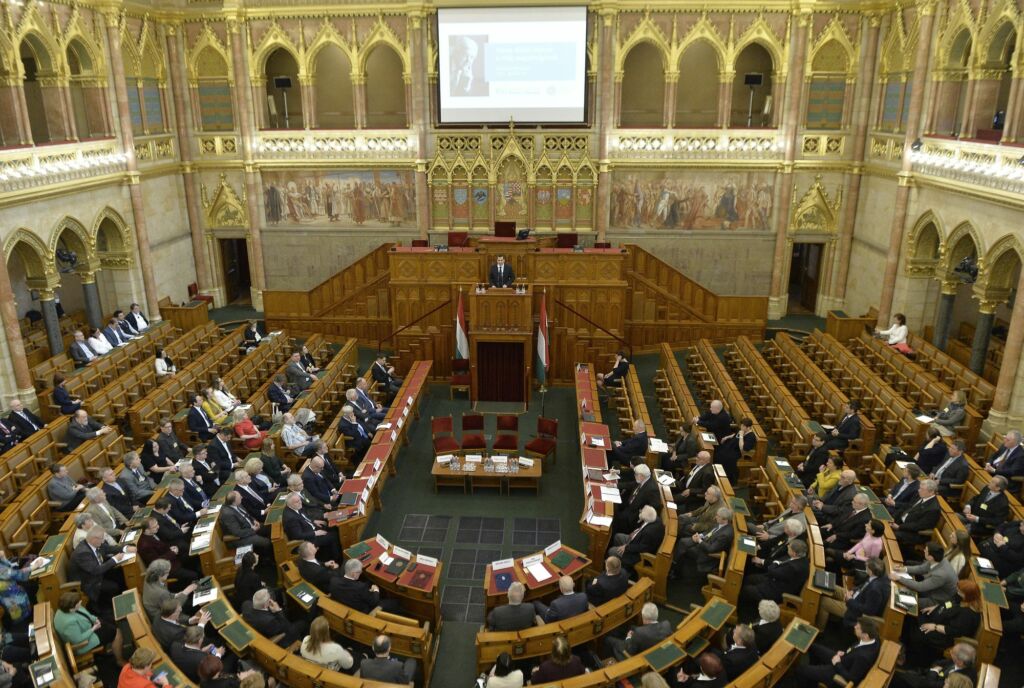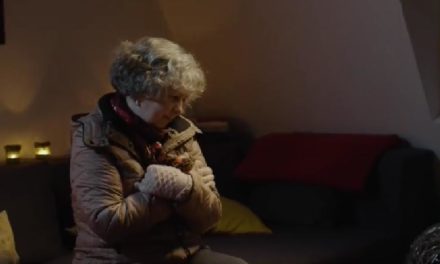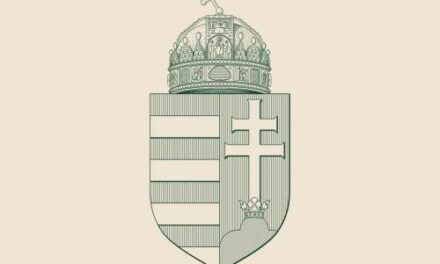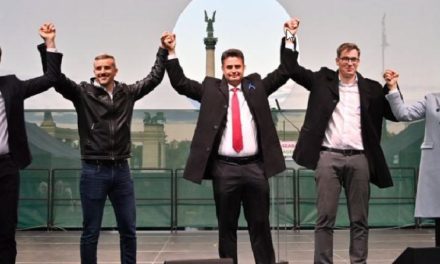Miklós Duray's whole life and his personal example are a message to the Hungarians of the world, said Zsolt Semjén in the Parliament. The deputy prime minister called Miklós Duray an emblematic personality of system change at the conference organized in memory of the recently deceased Hungarian politician from the highlands. He pointed out that the politician was an intellectual compass not only in the life of Hungarians in the highlands, but also in the life of Hungarians in general.
Zsolt Semjén recalled his personal memories, the political life of the highlands and touched on the fact that the Hungarian Youth Association was founded in Czechoslovakia in the spring of 1968, and Miklós Duray became its leader. The organization was already openly politicized at that time, and at its first conference it tried to influence the democratization and purification of Hungarian minority society.
Then, on August 21, 1968, the Soviet Union left no chance for even the smallest changes, and just as Hungary and Czechoslovakia were plowed up by the tracks of Soviet tanks at dawn on November 4, 1956, he recalled. He referred to Miklós Duray's words at the time, according to which
In 1968, the political ideas of Masaryk and Benes, which contributed to the fragmentation of Central Europe, were thoroughly shaken.
The lesson: atomized Central Europe is indefensible.
The result of this was the Hungarian tragedy of '56 and August of '68. According to the assessment of the politician from the Highlands, it took fifty years from the end of the First World War for the three historical nations of Central Europe, the Poles, the Czechs and the Hungarians, to reach a similar level of historical awareness and experience.
Zsolt Semjén recalled that for the next twenty years, Miklós Duray was active in the Hungarian Human Rights Committee in Czechoslovakia and authentically presented the life of Hungarians in Czechoslovakia. After the system change, Miklós Duray became a representative first in the Czechoslovak and then in the Slovak parliament, he was the president of Együttelés, and then, after the merger of the three parties, vice president of the Hungarian Coalition Party.
The deputy prime minister quoted Miklós Duray's message about what the message of today, the politician from the Highlands, said eight years ago at the commemorative conference of the centenary of the Great War. In it, Miklós Duray spoke about the fact that we have probably reached the edge of a decisive historical era,
we have to face the command rule of globalism, this can lead to the destruction of traditional cultures.
Only those who define themselves against the worldview, i.e. behave as orthodox, not as neoliberals, can escape annihilation. But there is also a more promising solution, which is opened up by questioning multiculturalism, since it is foreign to the European cultural space anyway. Multiculturalism means lack of character and confusion.
In Europe, for more than a thousand years, the diversity made up of characteristics meant value, and this was supplemented by Christianity, which still represents a unified system of values.
So we have a choice in front of us, but the path marked out for us by modern power politics does not lead to survival - Zsolt Semjén quoted the politician.
The Deputy Prime Minister declared: "we choose to remain".
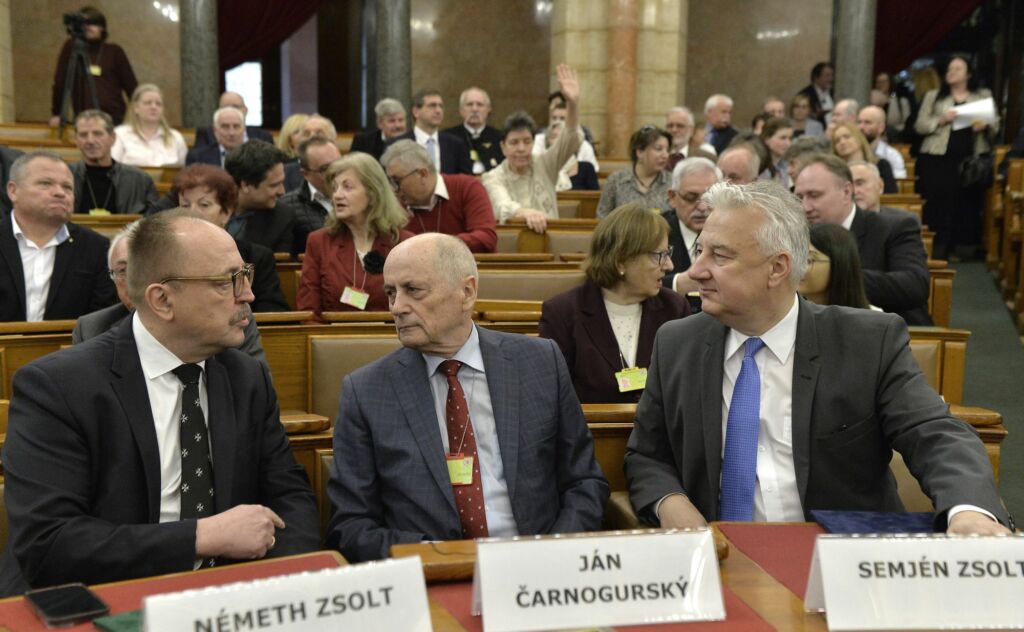
Zsolt Németh, chairman of the Foreign Affairs Committee of the Parliament, former Slovak Prime Minister Jan Carnogursky and Zsolt Semjén, Deputy Prime Minister responsible for national policy (bj) at the memorial conference organized in memory of the recently deceased politician from the Highlands, Miklós Duray, in the Parliament on April 20, 2023.
MTI/Lajos Soós
Zsolt Németh, the chairman of the Foreign Affairs Committee of the Parliament, emphasized that the rise of the Hungarian nation largely depends on whether the community applies the legacy of Miklós Duray.
He called it dramatic that 40-50,000 or 10 percent of the Hungarian population in the highlands had declined in ten years, while in Transylvania this number was around 200,000. In addition to the plummeting birth rates and the assimilation of Hungarians abroad, the war is also decimating our ranks, and the ethnic composition of Hungarians is deteriorating dramatically, he pointed out.
According to the politician, following in the footsteps of the "unyielding and inflexible" Miklós Duray, one must patiently accept the controversies and even the stigma in order to change the destiny of the nation for the better. This protects us from "becoming a nation of nodding Johns," he said.
Former Slovak Prime Minister Jan Carnogursky spoke about many issues separating Slovaks and Hungarians, but if we were to create an alliance in Central Europe that would mutually support each other, we would be able to represent a greater force than the total number of Slovaks and Hungarians. He said:
in an alliance with each other, Budapest would be able to contradict Brussels more easily, and after the change of government, perhaps Bratislava as well.
"Our alliance should not be about banning monuments depicting the map of historical Hungary, but about Budapest and Bratislava acting together," he recorded.
In his speech, Krisztián Forró, the President of the Hungarian Party of the Uplands, emphasized that Miklós Duray left us the rights-defending struggles and the nation-defending mission as a legacy. He knew very well that the Hungarian community in the highlands could only stay on its feet with its head held high, with determination fueled by deep faith and conviction. We remember him as an unbreakable Hungarian and European - he praised.
Gergely Deli, rector of the National Public Service University (NKE), said: Miklós Duray was looking for a legally regulated form of coexistence with the Slovak nation based on mutual respect and equality. He recalled that Duray also taught at NKE, where the protection of minorities was always prioritized, which is why the university's minority policy research workshop was created last year.
Source and full article: vasarnap.hu
Featured image: MTI

